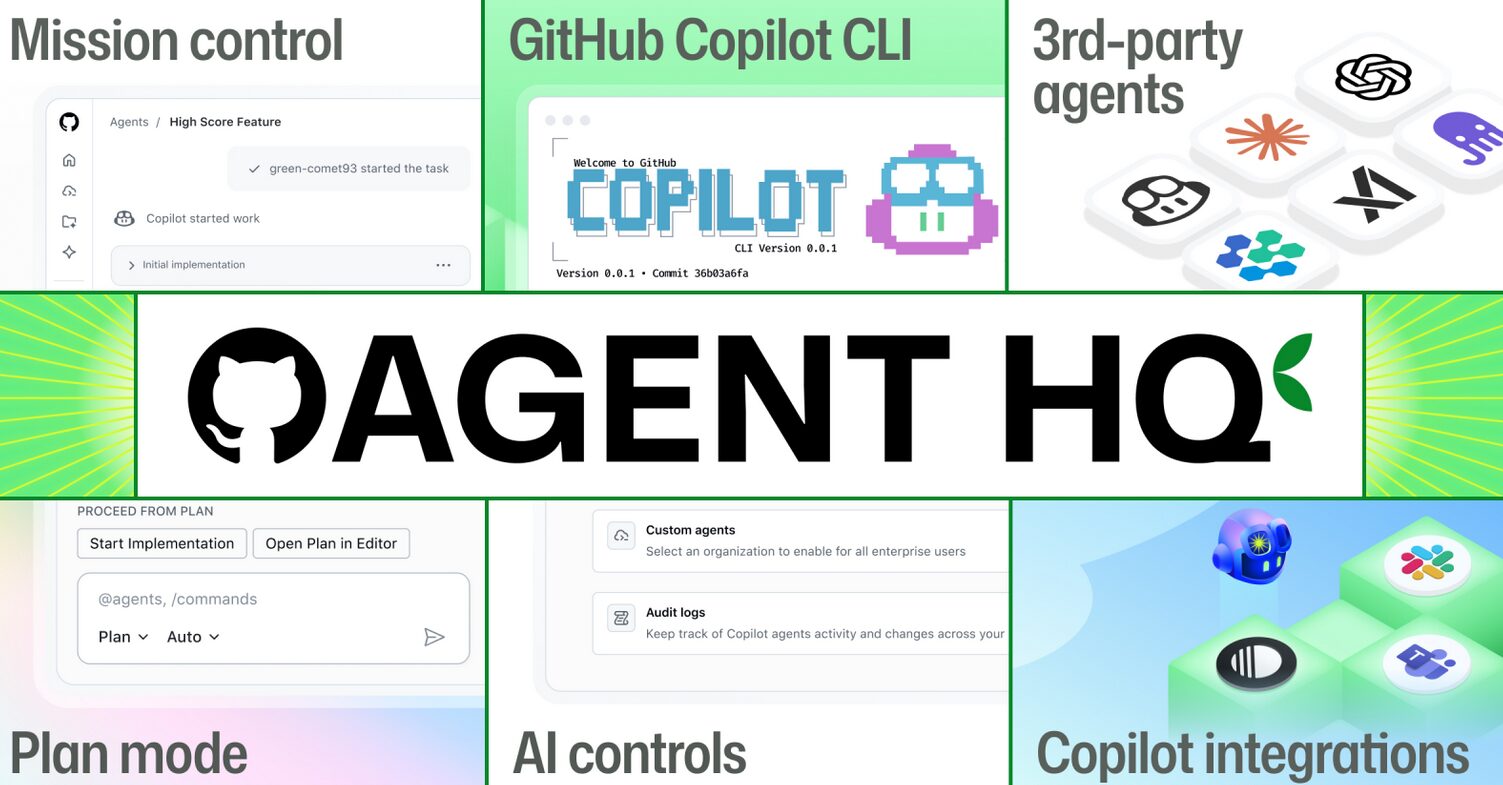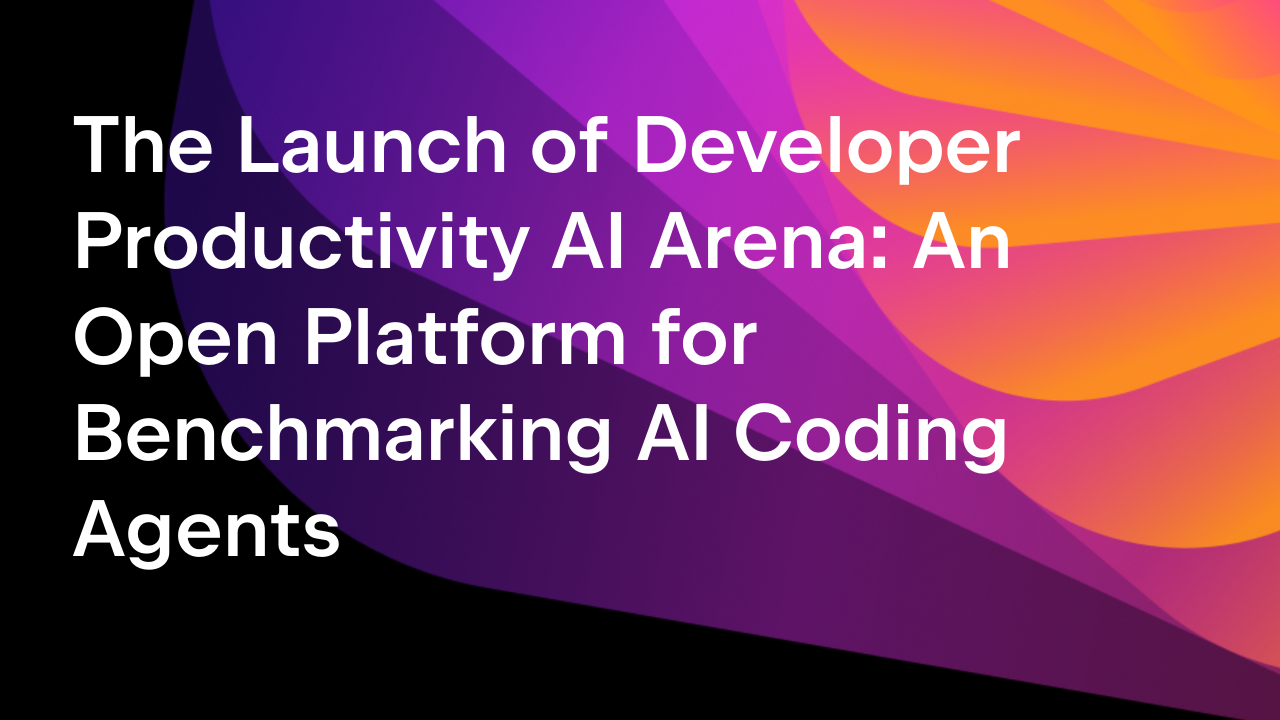The Dawn of a New Era: GitHub Unveils Agent HQ to Revolutionize Agent-Based Development
The world of software development is on the brink of another seismic shift, fueled by the relentless advancement of artificial intelligence. For the past few years, developers have become accustomed to AI as a “copilot,” an intelligent assistant offering code completions and suggestions. But at its annual GitHub Universe conference, GitHub signaled a move beyond mere assistance, unveiling a bold new vision for the future: Agent HQ. This groundbreaking initiative reimagines the entire GitHub platform, transforming it from a code repository and collaboration tool into a sophisticated command center for a new workforce of AI agents.
Agent HQ represents the next logical step in the evolution of AI-powered development. It’s a native, integrated environment designed to orchestrate, manage, and collaborate with autonomous AI agents that can take on complex tasks, from writing entire features to performing code reviews and resolving conflicts. This isn’t just about making developers faster; it’s about fundamentally changing the way software is built, governed, and shipped. With Agent HQ, GitHub is laying the foundation for a future where human developers and AI agents work together as a cohesive, highly productive team.
What is Agent HQ? A Centralized Hub for AI Collaboration
At its core, Agent HQ is GitHub’s answer to the impending explosion of AI agents in the software development lifecycle. As organizations begin to leverage various specialized agents for different tasks, the potential for chaos and fragmentation is immense. Agent HQ is designed to bring order to this new ecosystem, providing a single, unified platform where AI agents are not just add-ons but first-class citizens.
This move marks a significant paradigm shift from the current “copilot” model to a more sophisticated “agent-based” approach. A copilot assists a human who is in the driver’s seat, while an agent is given a mission and the autonomy to execute it. This distinction is crucial for understanding the ambition behind Agent HQ. It aims to empower developers to delegate entire blocks of work to AI, freeing them to focus on higher-level architectural decisions, creative problem-solving, and product strategy.
The native integration is key. Instead of developers juggling multiple subscriptions, APIs, and interfaces for different AI tools, Agent HQ embeds them directly into the familiar GitHub workflow. This seamless integration promises to reduce context-switching, streamline operations, and create a more intuitive and powerful development experience.
The Copilot vs. Agent Paradigm Shift
| Feature | The Copilot Paradigm (Today) | The Agent Paradigm (Agent HQ) |
|---|---|---|
| Role | Assistant / Pair Programmer | Autonomous Team Member / Specialist |
| Initiative | Reactive (responds to developer prompts) | Proactive (takes on assigned missions) |
| Scope | Line-by-line code, function generation | End-to-end tasks (e.g., build a feature, fix a bug) |
| Interaction | Constant, in-editor guidance | Asynchronous delegation and progress tracking |
| Management | Managed by the individual developer | Centrally managed and governed via Mission Control |
| Identity | Anonymous (code appears from the developer) | Distinct identity with traceable actions and permissions |
Expanding the Arsenal: Access to a Diverse Ecosystem of AI Agents
A cornerstone of the Agent HQ vision is choice. GitHub recognizes that a one-size-fits-all approach to AI will not suffice in a world of specialized tasks. To that end, the platform is opening its doors to a wide array of leading AI models and providers. Over the next several months, paid GitHub Copilot users will gain direct access to a curated selection of powerful coding agents from industry leaders, including:
- Anthropic
- OpenAI
- Cognition
- xAI
This multi-provider strategy is a game-changer. It transforms GitHub into a neutral marketplace for AI capabilities, allowing development teams to select the best agent for the job. One agent might excel at generating efficient Go code, another might be a master of front-end JavaScript frameworks, while a third could specialize in writing comprehensive, table-driven tests. By fostering this diverse ecosystem, GitHub empowers developers to assemble a virtual team of AI specialists tailored to their project’s specific needs, preventing vendor lock-in and ensuring access to cutting-edge innovation from across the industry.
Mission Control: The Command Center for Your AI Workforce
To manage this new team of AI agents, GitHub is introducing Mission Control, a central command center that provides developers with unprecedented visibility and control. This unified dashboard is the heart of Agent HQ, allowing users to assign, steer, and track the work of multiple agents as they operate across different parts of the development ecosystem, including the GitHub platform itself, the Copilot CLI, and within VS Code.
Mission Control is packed with powerful features designed for governance and efficiency:
- Branch Controls: Developers can maintain granular oversight of agent-generated code. This feature allows for running automated checks and validation on code created by agents in separate branches, ensuring that quality and security standards are met before any code is proposed for merging.
- Agent Identity Features: In a revolutionary move, agents will be treated like other team members. They will have their own identities, allowing organizations to manage them like any other collaborator. This means you can control which agent is assigned to a task, manage their access to specific repositories or secrets, and implement fine-grained policies to ensure compliance and security.
- One-Click Conflict Resolution: When agents working on different tasks produce conflicting code, Mission Control will facilitate a streamlined resolution process, often suggesting a fix that a developer can approve with a single click.
- Enhanced Workflow Tools: The command center includes improved file navigation and sophisticated code commenting capabilities, making it easier to understand and review the work performed by agents.
- Third-Party Integrations: Agent HQ will integrate with essential tools like Slack and Linear. This enables agents to post progress updates, flag issues for human review, and interact seamlessly with existing project management and communication workflows.
- Comprehensive Metrics Dashboard: To measure the real-world impact of this new paradigm, Mission control provides a detailed metrics dashboard. This allows teams and leaders to understand the effect of AI on productivity, code quality, and overall project velocity.
Enhancing the Inner Loop: Supercharging VS Code
While Mission Control manages the big picture, GitHub is also deeply enhancing the developer’s immediate coding environment. Agent HQ brings powerful new capabilities directly into VS Code, streamlining the “inner loop” of development.
Introducing Plan Mode
One of the most exciting additions is Plan Mode for Copilot in VS Code. This feature transforms Copilot from a reactive code generator into a proactive strategic partner. When a developer outlines a complex task, Copilot will enter Plan Mode and begin asking clarifying questions to build a comprehensive, step-by-step implementation plan.
This upfront planning phase is invaluable. It helps developers identify potential gaps, uncover missing requirements, and spot architectural deficiencies before any code is written. By collaborating with the AI on a solid plan, developers can avoid costly rework and ensure the final solution is robust and well-designed. Once the developer approves the plan, Copilot can begin implementation, either locally in the IDE or by dispatching tasks to a specialized agent in the cloud.
Democratizing AI with Custom Agents
To ensure that AI agents align with a team’s unique standards, GitHub is introducing AGENTS.md files. This simple yet powerful mechanism allows developers to define clear rules, guardrails, and best practices directly within their repository. For example, a team can specify:
- “Use table-driven tests for all handlers.”
- “All new API endpoints must include OpenAPI documentation.”
- “Follow our internal design system for all React components.”
These custom instructions transform a generic AI model into a specialized team member that inherently understands the project’s context and conventions. This deep level of customization is crucial for maintaining code consistency and quality at scale.
A Commitment to Quality and Confidence
GitHub understands that with the power of AI comes the responsibility to ensure the code it produces is reliable, secure, and maintainable. Agent HQ is being built with quality at its core, incorporating several new features designed to build trust and confidence.
A public preview is now available for GitHub Code Quality, an AI-powered analysis tool that provides developers with in-context feedback on their code. It goes beyond simple linting to offer scores for reliability and maintainability, identifying deeper architectural issues. Crucially, it integrates one-click Copilot fixes, allowing developers to not only see problems but also resolve them instantly.
Furthermore, a code review step is being integrated directly into the agent workflow. Before an agent submits generated code for human review, it will first undergo an initial automated review. This process can catch common errors, ensure adherence to style guides, and prepare the pull request for a much more efficient and focused review by a human developer.
Finally, the new Copilot metrics dashboard provides transparent insights into Copilot’s impact on a team’s workflow. By tracking critical usage metrics, acceptance rates, and other key performance indicators, organizations can make data-driven decisions about how to best leverage AI to improve both productivity and code quality.
From AI Hype to Practical Reality
The announcement of Agent HQ is more than just a product launch; it’s a statement of intent. GitHub is tackling the practical challenges of integrating AI into real-world development workflows head-on. As Kyle Daigle, COO of GitHub, articulated in a blog post, this initiative is grounded in the daily reality of shipping software.
“We built Agent HQ because we’re developers, too. We know what it’s like when it feels like your tools are fighting you instead of helping you. When “AI-powered” ends up meaning more context-switching, more babysitting, more subscriptions, and more time explaining what you need to get the value you were promised. That ends today. Agent HQ isn’t about the hype of AI. It’s about the reality of shipping code. It’s about bringing order and governance to this new era without compromising choice. It’s about giving you the power to build faster, with more confidence, and on your terms.”
This developer-centric philosophy is the driving force behind Agent HQ. By creating a unified, governed, and open platform, GitHub is aiming to eliminate the friction associated with today’s fragmented AI tools. The future of software development will be a collaborative effort between human ingenuity and artificial intelligence. With Agent HQ, GitHub is building the definitive home where that collaboration can thrive, empowering developers to tackle bigger challenges and build the future, faster and more confidently than ever before.








Comments